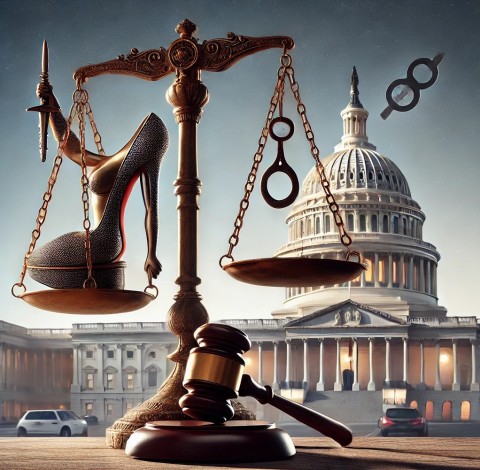Sex work, a profession deeply rooted in history, continues to face significant challenges in modern society. Despite advancements in civil rights, sex workers in the United States still grapple with legal and social hurdles that hinder their safety and well-being. Recent legislative changes have only exacerbated these issues, making it more crucial than ever to advocate for the rights and protection of sex workers both domestically and globally.
Current Legal Landscape
In recent years, several pieces of legislation have been introduced that, despite their stated intentions, have adversely affected sex workers. These laws are often framed as measures to combat human trafficking and illegal activities, but in practice, they frequently cause harm to those they claim to protect. Below are some of the most contentious and damaging laws:
New York’s Walking While Trans Ban Repeal
Overview: The repeal of this law in 2021 marked a significant victory, as it had previously enabled police to arrest individuals, particularly trans women of color, on suspicion of loitering for prostitution.
Impact: While the repeal has reduced some discriminatory policing practices, broader decriminalization efforts are still needed to ensure comprehensive protection for sex workers.
California's SB 357 (Safer Streets for All Act)
Overview: Introduced in 2021, this bill sought to decriminalize loitering for the purpose of prostitution.
Impact: Although intended to reduce police profiling and harassment, the slow passage and partial implementation of SB 357 left many sex workers in a precarious legal situation, still vulnerable to arrest and discrimination.
FOSTA-SESTA (Fight Online Sex Trafficking Act and Stop Enabling Sex Traffickers Act)
Overview: Enacted in 2018, FOSTA-SESTA was designed to reduce sex trafficking by making websites legally responsible for content related to sex work.
Impact: This law led to the closure of many online platforms that sex workers relied on to safely advertise their services and screen clients. The unintended consequence has been a shift towards more dangerous, street-based work, increasing the risk of violence and exploitation.
The Human Toll
The consequences of these laws are far from theoretical; they have tangible, often devastating impacts on the lives of sex workers. The criminalization and stigmatization of sex work drive the industry underground, increasing the dangers sex workers face. Many are exposed to violence, extortion, and limited access to justice. Additionally, barriers to healthcare services persist, as sex workers fear arrest or discrimination if they seek medical help.
Marginalized communities bear the brunt of these legislative measures. Transgender individuals, people of color, and undocumented immigrants within the sex work industry experience heightened levels of violence and reduced legal protections. The intersectionality of racism, sexism, and transphobia further compounds the difficulties these individuals face.
Steps Toward Positive Change
To protect and empower sex workers, comprehensive legal reform and societal shifts are necessary. Here are some crucial steps that can be taken:
Decriminalization of Sex Work
Rationale: Full decriminalization would allow sex workers to operate without the constant threat of arrest and would empower them to report crimes committed against them without fear of legal repercussions. Countries like New Zealand have successfully implemented such measures, with positive outcomes for sex workers' safety and well-being.
Support Harm Reduction Initiatives
Rationale: Providing resources such as safe working environments, healthcare services, and legal assistance can significantly mitigate the risks associated with sex work. Harm reduction approaches recognize the reality of sex work and aim to make the industry safer.
Combatting Stigma
Rationale: Public education campaigns can play a crucial role in changing societal attitudes towards sex work. By reducing stigma, sex workers can gain better access to support services and face less discrimination in areas like housing and employment.
Engaging with Lawmakers
Rationale: Advocacy is essential to influencing policy. By contacting local representatives and expressing support for sex workers' rights, individuals can help shape legislation that protects rather than endangers sex workers.
Taking Action
As citizens, we hold the power to influence legislative change. Here’s how you can make a difference:
Educate Yourself and Others: Learn about the challenges sex workers face and share this knowledge within your community to raise awareness.
Contact Your Representatives: Regularly communicate with your local representatives to emphasize the importance of safeguarding sex workers' rights.
Support Advocacy Groups: Organizations like SWOP Behind Bars and Decrim 305 are at the forefront of advocating for sex workers. Your support can help amplify their efforts and drive meaningful change.
Sex workers deserve the same rights and protections as any other workers. It's time to challenge harmful legislation that puts them at risk and to advocate for a decriminalized framework that ensures their safety, dignity, and human rights.
Upcoming Legislative Developments
As 2024 progresses, several bills across the United States could have significant implications for sex workers' rights and safety:
New York's A8230: This bill seeks to fully decriminalize sex work, potentially setting a precedent for other states.
California's AB 208: A proposed commission would study the impacts of criminalization on sex workers and recommend reforms.
Oregon's HB 3088: This bill aims to decriminalize sex work and expunge past prostitution convictions, offering legal recognition and reducing stigma.
Florida and Texas: These states are considering harsher penalties for solicitation, which could push the industry further underground, increasing risks for sex workers.
Advocates are closely monitoring these developments, urging lawmakers to prioritize the health, safety, and human rights of sex workers in their decisions. Regular engagement with legislators and staying informed about these bills are crucial steps in supporting the sex work community.
By advocating for change and supporting the rights of sex workers, we can contribute to a safer, more just society where every individual’s dignity is respected and protected.

